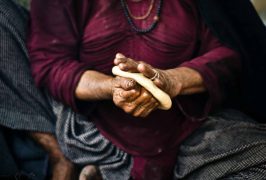This case concerned sex discrimination in the Indian Act.
LEAF, in partnership with the Native Women’s Association of Canada (NWAC), appealed to the Supreme Court of Canada.
Facts
Two complainants filed complaints with the Canadian Human Rights Commission (the Commission), arguing that the legislative entitlements to registration under the Indian Act were discriminatory practices prohibited by the Canadian Human Rights Act (the CHRA). The Canadian Human Rights Tribunal (the Tribunal) held that the proper venue to challenge the discriminatory denial of Indian status is not under human rights legislation, but under the Charter in a court of law. Both the Federal Court and the Federal Court of Appeal found that the Tribunal decisions were reasonable and upheld them. The Commission appealed to the Supreme Court of Canada.
Arguments
LEAF and NWAC argued that the Tribunal’s decision created significant barriers to accessing justice, and to equality for human rights complainants, particularly First Nations women who experience sex discrimination under the Indian Act. First Nations women should be able to choose to proceed through either the human rights tribunal system or the court system to challenge sex discrimination in the Indian Act.
First Nations women have long been subject to sex discrimination under the registration provisions of the Indian Act, which has denied First Nations women access to services, benefits, and cultural identity and belonging. LEAF and NWAC’s argument outlined the historic failure of the Court system in remedying this discrimination: First Nations women such as Mary Two–Axe Early, Jeannette Corbiere Lavell, Yvonne Bedard, Sandra Lovelace, Sharon Donna McIvor, and more recently, Lynn Gehl were forced to engage in lengthy, expensive and difficult struggles for equality under the Indian Act, in the Canadian court system and at international rights bodies, none of which eradicated the sexist registration rules altogether.
Outcome
The Supreme Court dismissed the appeal. The Court endorsed a narrow interpretation of the CHRA, and the corresponding role of the Tribunal. This limited the capacity of First Nations women to challenge the sexist registration provisions in the Indian Act. The Court also endorsed the finding of the Tribunal that its statute does not allow it to consider challenges to the discriminatory registration provisions in the Indian Act.
LEAF is grateful to Mary Eberts, Kim Stanton, and Virgina Lomax, counsel in this case, as well as Nadia Effendi, Ottawa agent for LEAF and NWAC.
Download the factum here.
Read the Supreme Court of Canada’s decision here.
Our records are imperfect, but we are doing our best to update them – if you were involved with LEAF on this case but your name is not reflected here, please email us at [email protected].
